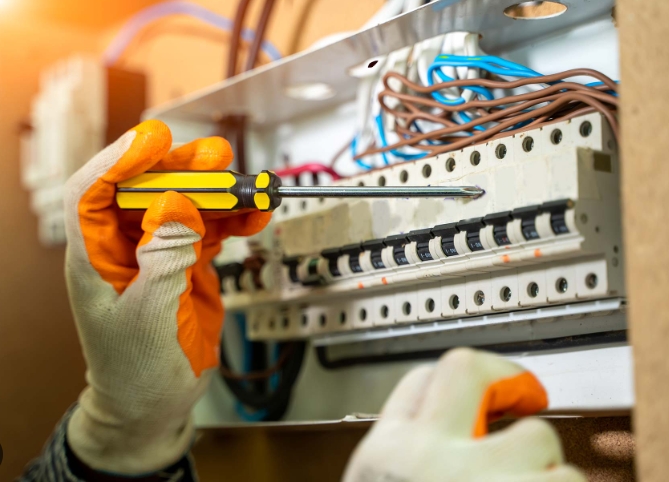In the world of electrical systems, contactors play a crucial role in ensuring the safe and efficient operation of various devices and equipment. From controlling power distribution to protecting circuits, contactors are indispensable components that electricians rely on. In this blog post, we will delve into the reasons why electricians use contactors, exploring their significance, functionality, and benefits.
- Enhanced Electrical Safety:
Contactors are designed to handle high voltage and current levels, making them essential for maintaining electrical safety. By using contactors, electricians can effectively isolate faulty circuits, preventing potential hazards such as electrical shocks, short circuits, and fires. The ability to quickly interrupt power flow in case of emergencies ensures the protection of both people and equipment. - Efficient Power Control:
One of the primary reasons electricians use contactors is their ability to control power distribution. Contactors act as switches, allowing electricians to turn on or off the power supply to specific devices or equipment. This feature is particularly useful in industrial settings where multiple machines need to be operated simultaneously or in a coordinated manner. By using contactors, electricians can easily manage power flow, optimizing energy consumption and preventing overload situations. - Durability and Reliability:
Contactors are built to withstand heavy electrical loads and frequent switching operations. Unlike regular switches, contactors are designed to handle high inrush currents without damage or failure. This durability ensures their reliability in demanding environments, making them ideal for industrial applications where continuous operation is required. Electricians can rely on contactors to provide long-lasting performance, reducing maintenance costs and downtime. - Remote Control and Automation:
With advancements in technology, contactors now come equipped with remote control capabilities. Electricians can integrate contactors into automated systems, allowing for remote operation and control. This feature enables efficient monitoring and management of electrical systems, enhancing convenience and flexibility. By utilizing contactors with remote control functionality, electricians can remotely troubleshoot, diagnose, and rectify issues, minimizing downtime and improving overall system efficiency. - Protection against Voltage Fluctuations:
Voltage fluctuations can cause significant damage to electrical equipment. Contactors offer protection against such fluctuations by providing voltage monitoring and control features. Electricians can set specific voltage thresholds, and if the voltage exceeds or falls below the defined limits, the contactor will automatically interrupt the power supply. This safeguard prevents equipment damage and ensures stable operation, especially in areas with unreliable power supply.
Conclusion:
Contactors are indispensable tools for electricians, providing enhanced safety, efficient power control, durability, and remote control capabilities. Their ability to handle high voltage and current levels, along with their reliability, makes them essential components in various industries. By understanding the importance of contactors and their functionalities, electricians can ensure the smooth operation of electrical systems while prioritizing safety and efficiency.

